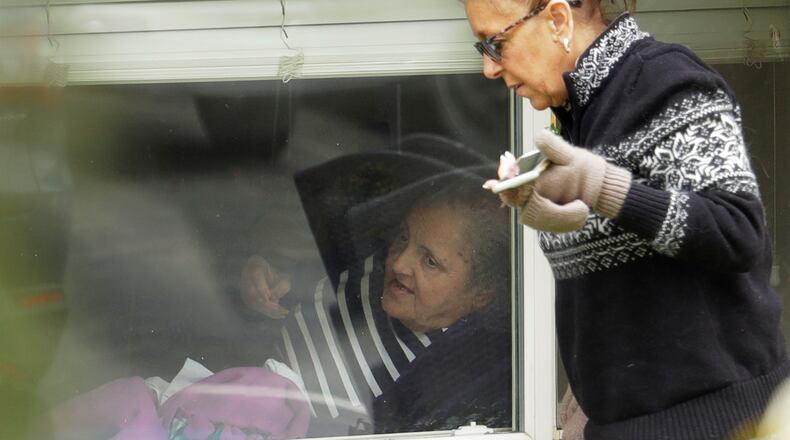Coronavirus: Several YMCA branches turned into emergency child care centers
“Our members are exploring opportunities to engage Ohio college students home from school and servers who can’t work now that the restaurants are closed. We want to find a way to connect these individuals to temporary jobs helping to deliver meals and groceries to elders, caring for health care workers’ children, and more – and of course, we hope some stay in our field,” Brod said.
Pete Van Runkle, executive director of the Ohio Health Care Association, which represents nursing homes, said workers who were let go by restaurants and bars should consider seeking a position at a nursing home for work such as dining services as well as other jobs.
“Because we need more staff to deploy all of the things that we’re now required to do, such as screening people into the building,” Van Runkle said. “But we also have to have regulatory relief there, in terms of some of the training and testing requirements that are in place.”
With all group activities canceled, gyms and dining halls closed, and residents spending a lot of time in their rooms without visitors, isolation is a major concern. Technology like FaceTime can be used to connect with family, but for some, it is simply not possible, Brod said.
MORE: Restaurant owners worry their businesses won’t survive coronavirus extended shutdown
She said some providers are designating staff members as the “video pal”, who will go room to room with an iPad – sterilized between visits – to help residents FaceTime or call family. Virtual tours, theater performances, and other options are being shared.
Chip Wilkins, Long-Term Care Ombudsman Program director in the Dayton region, who advocates for residents in long-term care, said the big question for many nursing homes is getting creative so residents can contact their loved ones through FaceTime or other types of video chats.
He said the problem is that most nursing homes don’t have enough equipment to make this happen.
If people have technology they can donate, such as a laptop or iPad that can help people talk with loved ones, Wilkins said they should call a facility near them and see if it is needed and if they can work with the facility to arrange a drop off.
Wilkins said his office sees some families that visit with their loved ones for six to eight hours a day and now those visits have been cut off because of the virus.
“One of our biggest priorities right now is coming up with ways to keep family members in contact,” Wilkins said.
Van Runkle said nursing homes are working to conserve personal protective equipment, like masks and gowns, but it’s still a serious challenge, even with conservation approaches to stretch out supplies.
“Those can only go so far and they also raised some concerns about when do we start compromising patient safety or the safety of other patients? So that’s a challenge,” Van Runkle said,
LeadingAge is working with senior affordable housing and independent living settings as, in most cases, these are not restricted in the way that nursing homes and assisted living currently are; but they are still home to vulnerable populations.
MORE: Coronavirus crisis sparks 2,500% increase in Ohio unemployment claims this week
Housing operators don’t have the ability to stop residents from going out or coming in. They are doing what they can to limit contact and monitor for symptoms in ways that still respect the individuals desire for privacy. Every building is different in terms of the needs of its occupants.
Brod said the restrictions on visitation in nursing homes and assisted living enacted by the state, as well as those of the president, have helped providers to protect their residents.
“At the same time, visitation limits are heart-breaking for families. There are so many spouses and family members who visit long-term care facilities daily,” Brod said. “But to keep vulnerable residents safe, these temporary measures are necessary – and having an Administration that has taken the initiative to make those tough calls early in the process here makes it easier to protect both their loved ones and the staff serving them.”
About the Author
